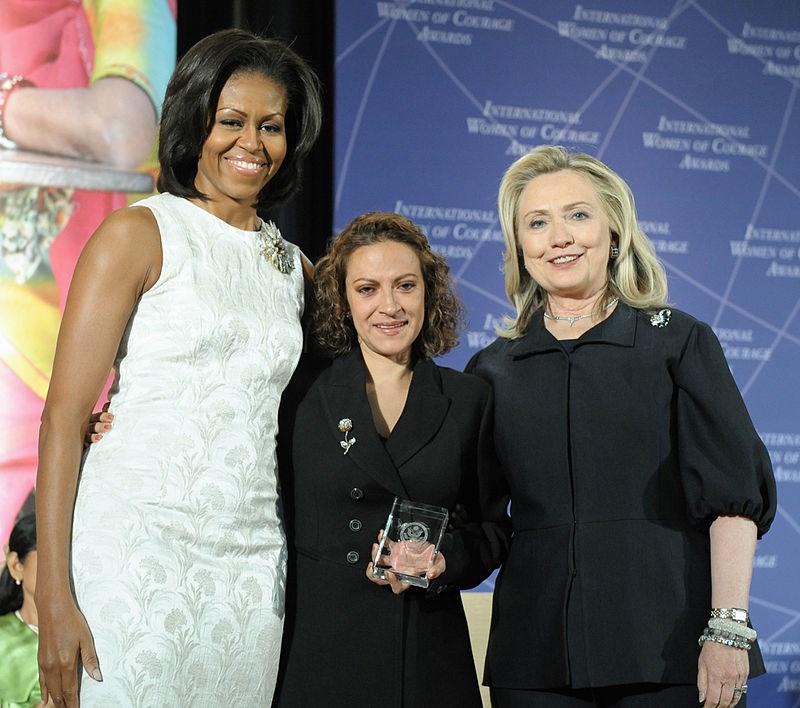In 2000, Jineth Bedoya Lima was a reporter for a newspaper in Colombia, reporting on drug cartels and government corruption — not exactly a soft beat.
One day, she was told she could speak to a source, but it was a setup. Instead, she was abducted, raped, beaten, threatened with her life and told to quit doing her job. Two weeks later, she was back at her desk reporting on drug cartels and government corruption.
Two years after that, again, she was captured and beaten, and this time held for eight days. Soon after she was let go, she was (you guessed it) back at her desk reporting on drug cartels and government corruption — although this time she went one better, including rape as a systematic form of oppression. After her first abduction, that particular assault had still been too painful to talk about.
For the past two decade, Bedoya has continued doing what she does, exposing the elite and giving voice to the vulnerable. Three weeks ago, she was awarded the Golden Pen of Freedom by the WAN/IFRA (World Newspapers Association), an organization founded in 1948 to advocate for press freedom.
I mention all this because this is National Newspaper Week in Canada, so an apt time to talk about the state of the industry.
Granted, Canada is a long way from Colombia — not just geographically. However, an attack on a journalist anywhere is an attack on journalists everywhere, as a previous Golden Pen winner said.
Besides, there is more than one way to kill press freedom. Every year, Reporters Without Borders compiles the Press Freedom Index, where it ranks 180 countries on how free journalists are to do their jobs. This year, Canada ranks 16, not terrible but leaving room to improve.
While murdering and imprisoning reporters will lower a country’s ranking, so will state monopoly, concentration of ownership, self-censorship and, what is probably the greatest threat to Canadian journalism — underfunding.
After Bedoya was awarded her Golden Pen, WAN/IFRA hosted a panel that included herself, co-founder of the Philippine online news website Rappler (and my personal hero) Maria Ressa and VP for GroupM Brand Safety, John Montgomery. The trio talked about threats to press freedom. What they identified as the two most critical ones were not assaults on journalists or even censorship, but rather social media and a reduction in advertising — separate but related issues.
Facebook, Twitter and WeChat are great places to connect, but they’re also remarkably fertile ground for sowing lies and cultivating fake news. The fact they are governed entirely by algorithms as opposed to thinking human beings who make mistakes but, for the most part, have a commitment to the integrity of facts and the ideals of press freedom, has had consequences. They include filter bubbles and astroturfing, the practice of manipulating algorithms to make an issue/story appear grassroots when in fact it’s been orchestrated by political or corporate operatives.
This stuff is hard for mainstream media to combat. Salacious lies travel a lot faster than balanced fact-based news, and advertisers tend go where the eyeballs go. This has left many local papers financially decimated, while Facebook and the like rake in mind-boggling profits.
Ironically, some of the very folks, who usually decry government censorship, are now calling for greater regulation of Big Tech. It might sound hypocritical, but press freedom doesn’t mean a free-for-all. It means a commitment to truth and accountability.
But even without regulations, (most) people aren’t stupid. Throughout the pandemic, when balanced, fact-checked information has been critical, Richmond News’ readership has grown significantly. In fact, we’ve had people contacting us saying, “I saw this on social media, is it true?”
These are tough times for all, but I have to believe in our readers and those in our industry (such as Bedoya) who hold firm to the ideals of a free press.



